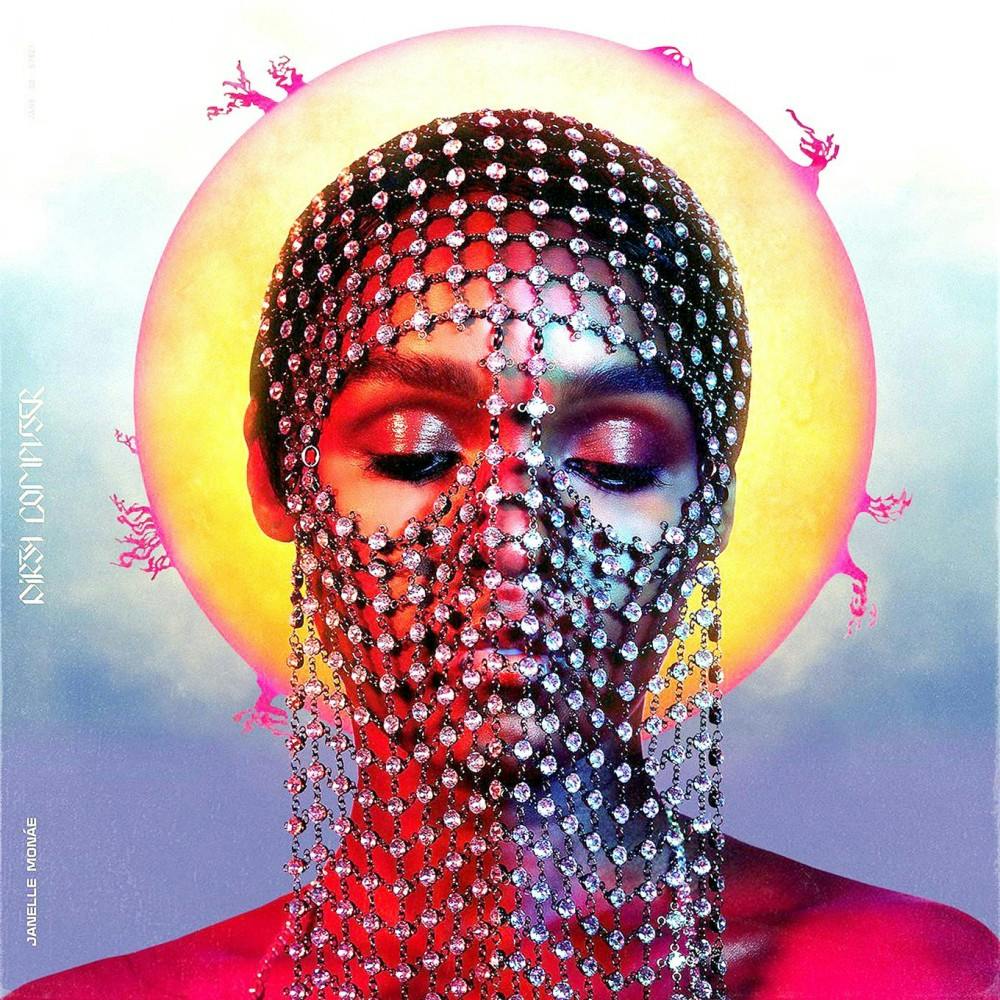Janelle Monáe’s album “Dirty Computer,” released in April of this year, is a bold expression of her unique experiences with sexuality and self-expression, and how these experiences have been shaped by American society. Monáe, who also came out as pansexual this year, uses “Dirty Computer” as a way to give a voice to women and their sexuality, something which is often ignored.
“Dirty Computer” is beautifully crafted, with the sounds of several of the songs clearly influenced by artists of the 1970s and 80s. These vintage elements are mixed in with more modern, electronic sounds evocative of the computer in the album’s title. This is particularly noticeable in the album’s second track, “Take a Byte,” in which Monáe creates an image of a herself as a sexual being who is both confident and playful.
Another notable example of the album’s unique sound is “Make Me Feel,” one of the singles from the album. The song is reminiscent of work by Prince, and the accompanying music video is an example of Monáe’s use of art to communicate her experiences with sexuality. The video gives Monáe both a male and a female love interest, an acknowledgement of her pansexuality.
Monáe’s lyrics are also a tribute to the female body, long considered to be something obscene. “Pynk,” another one of the album’s tracks, focuses on the relationship of women’s bodies to their sexuality.
It is particularly focused on this experience as felt by women who identify as lesbian, bisexual or pansexual. Beyond analyzing how women relate their bodies to their sexuality, it is also a song that praises the beauty of this relationship. There have been many pop songs that focus on body positivity in women, but none that relate this to female sexuality the way that “Pynk” does.
In listening to the songs that are themed around sexuality, it is clear that they are a response to the current public opinions of women. In most of the songs, Monáe is taking charge of her sexuality just as she did when she made the choice to come out. She has given herself a large amount of agency, refusing the stereotype of a submissive woman.
Monáe also acknowledges the connection between violence towards women and their sexuality. In “Screwed,” a collaboration with Zoë Kravitz, she makes good use of the double meaning implied by the song’s title. She paints a picture of the chaos that seems to be constantly present, and contrasts it with her desire for freedom.
Two lines in particular create powerful connection between politics and the policing of women’s bodies: “You know power is just sex / Now ask yourself who’s screwing you.”
In the discussion of her sexuality throughout the album, Monáe also interweaves her identity as a black woman. One song that she does this masterfully on is “Django Jane,” in which she expresses fierce pride in her identity. This is her declaration to the world that she draws strength from this identity and that she deserves respect for it.
With lines such as “We gave you life, we gave you birth / We gave you God, we gave you Earth,” Monáe affirms the power that black women are constantly denied by society and links it back to female sexuality.
In sharing her personal experiences in the context of today’s political climate, Monáe has created an album that preserves a moment in history when oppressed groups have to work especially hard to make their voices heard. When listening to “Dirty Computer,” however, it is clear that Monáe has not allowed this oppression to break her spirit. Rather, “Dirty Computer” is a display of one woman’s strength and her determination to make herself heard.
Veronica Apodaca is a culture writer for the Daily Lobo. She can be contacted by email at culture@dailylobo.com or on Twitter @veeapodaca.
Get content from The Daily Lobo delivered to your inbox






